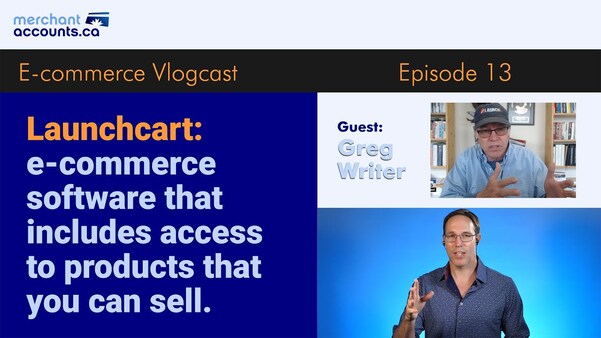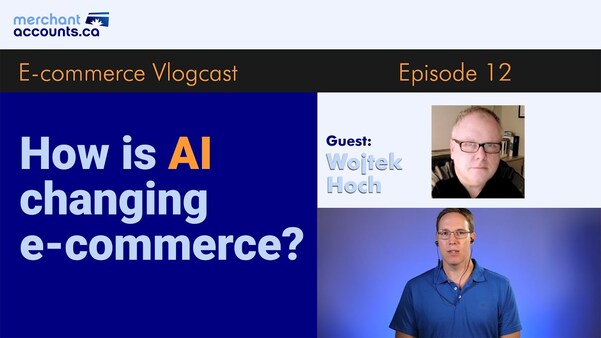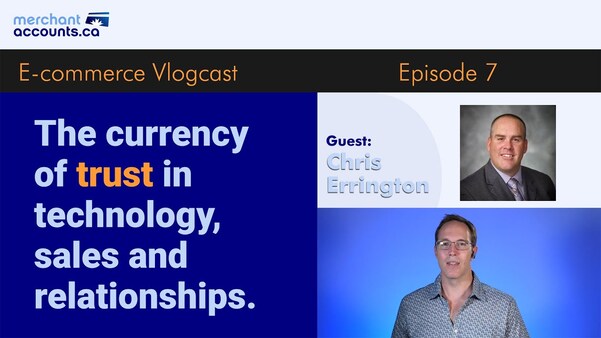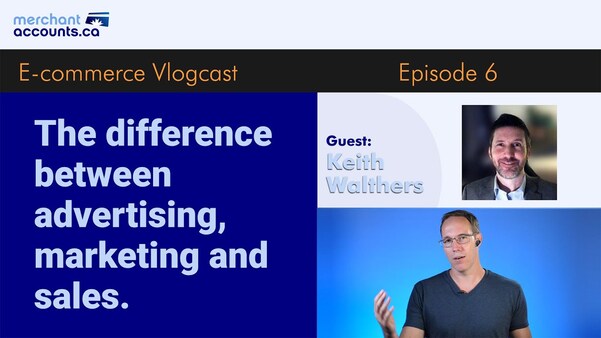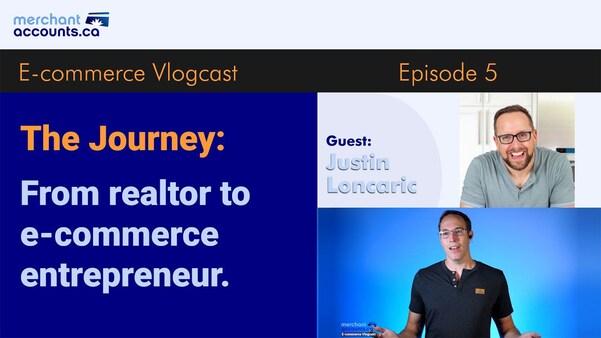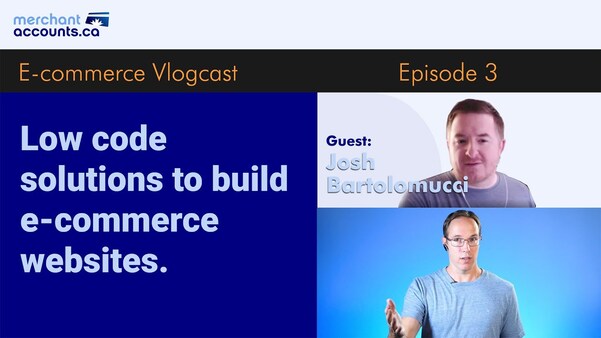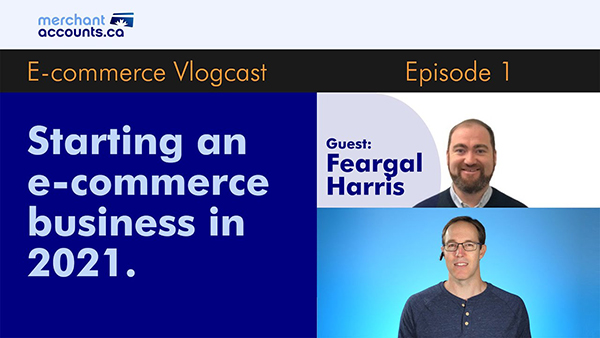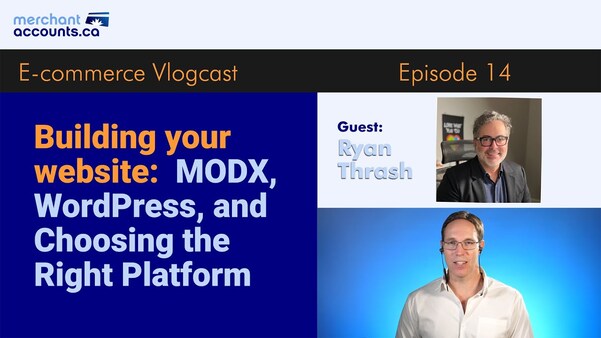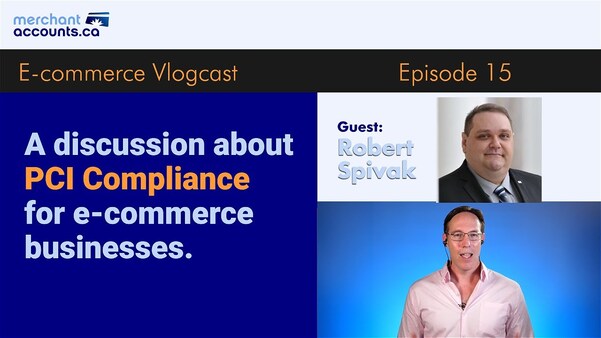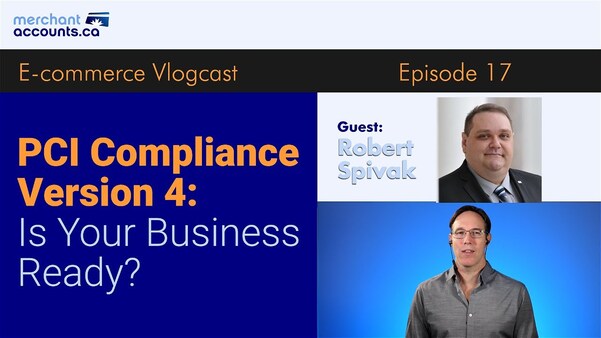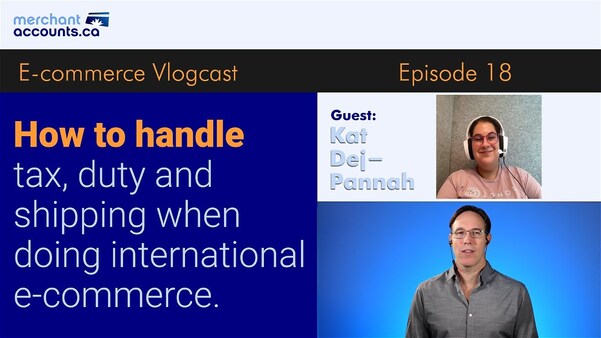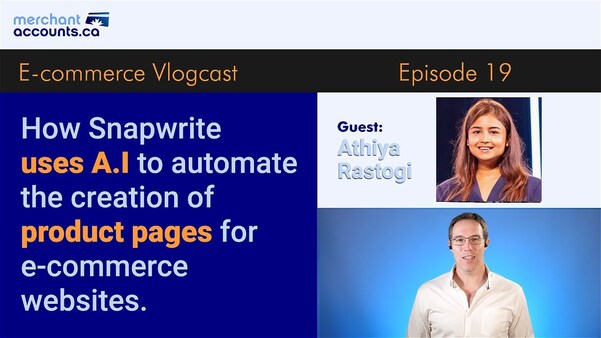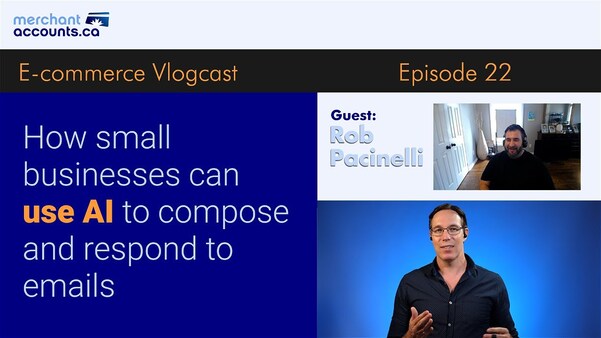June 29, 2023
by David Goodale
How to switch from one shopping cart software
(Slightly edited from video transcript for greater readability)
David Goodale:
Hello, David here at Merchant-Accounts.ca with another episode of the vlogcast. Today we're talking about an interesting topic, which is about merchants and business owners being stuck on a website platform, which can be a challenging problem. For example, they can get stuck on a platform like Shopify. These platforms sometimes make it easy to get going. They're amazing platforms, but there are downsides. You don't own your infrastructure. You could just be unilaterally shut down. It's hard if you outgrow these platforms as well to get off of them. Even if you scrape your data and your photos, and your information, it's sometimes hard to replicate elsewhere. This is a big problem. Today I'm talking to Vitaliy Naumenko. I hope I pronounced that correctly from Cart2Cart also shopping-cart-migration.com. Vitaliy is an expert on migrating from one shopping cart platform to another. He's the office manager at Cart2Cart. Vitaliy, thanks for joining today.
Vitaliy Naumenko:
Hi David, nice to meet you. Thank you for your intro.
David Goodale:
I have so many questions for you today; I'm just going to kind of start with, I think, the one that makes the most sense. If you're on a website, say you're running Shopify, or I guess I don't want to pick on it, BigCommerce, WooCommerce, it could be anything. How hard is it to migrate from one shopping cart platform to another?
Vitaliy Naumenko:
Generally, it depends on the platform because each migration has two main steps. The first step is to export the data from the old platform. The next step is to import the information which was exported into the new platform. It depends on what the platforms are and what the peculiarities are because some platforms are migrated directly. Other platforms are migrated via exported files. It depends. It also depends on access to the platform, sometimes like blocking from the hosting provider or some limitations to access the backend. It may cause difficulties, but generally, migration is possible. If data can be exported or imported, then it's not a problem.
David Goodale:
That's interesting. One of the things that struck me, and you just said this, like some are harder than others. I have this belief. I'd like you to tell me, if I'm correct, the platforms that make it the easiest. Boy, I don't mean to cherry-pick on Shopify. Shopify's a perfectly fine platform. It's a great platform, Shopify's famous for making it super easy to get going. Generally speaking, the easier it is to get going, does that make it harder to get off it in the future? y Because that software is a service, that hosted platform, you have less access to the code. Is that, is that generally a true statement?
Vitaliy Naumenko:
Generally, yes. If you speak about any platform, I believe the idea of the platform is to make it, as much as possible, easy to get into the platform to join this platform to make it mm-hmm as hard as possible to quit from the platform because, yes, actually that will make your customers keep this platform and don't change it as long as possible. Still, most of the platforms provide possibilities either for export or files, either connection via API. Depending on the direction, whether it's exporting or importing the data, those possibilities are different. If it can be like, if we can read this information, then we can export it. If we speak about API-based platforms if we can read some fields via API calls, and actually, it's possible to get this information and input it into another platform. Then, our service makes sense. In other services similar to Cart2Cart, the task is to make the information adjustable for another platform because we take this field from Shopify or BigCommerce via API, but the same field, is similar in Shopify and BigCommerce if you take this information from different platforms. It'll be different. You cannot just take it from one platform and put it into another.
David Goodale:
You just made a great point. Can I cut in there? You named two of the big hosted cart platforms, Shopify and BigCommerce. What I was thinking about while you were speaking is early on in the stage, if you're thinking, hey, you know, I've outgrown this, or it's not working for me so far, like Shopify or BigCommerce as examples, how does someone start to know how easy or hard the migration is going to be? Like, would they reach out to you guys about that? Or is it kind of obvious? I'm curious to know, how would someone know how hard this is going to be? Or is that a lot of work to even find out how much work it will be to migrate?
Vitaliy Naumenko:
When you go to our site and when choose the source platform, the one which you are trying to quit, the destination platform, or the target when you choose these platforms and you have to check the details button. After that, you will have the full list of the information that can be migrated by default. Okay, if you have some customizations in this case, it will require additional investigation, and our team will have to check if it is possible to export or input this information or not.
David Goodale:
Is there a cost for that discussion?
Vitaliy Naumenko:
If you speak about just investigation, if you want to know whether it is possible or not, it is free. If you would like to have like a test with this customization, in this case, at least some partial payment is to be done because the team will have not just to check the possibility. They will have to create this customization and run a small demo with this customization. Just not to waste time on our teams. We ask our customers to pay 10-20% of the total price for this custom demo. Then we can proceed. The customer just adds the difference between the final price and the funds that were added.
David Goodale:
Interesting. You just said a word that flashed to me is an important word, which is customization. It led me to a question. The question that I'm thinking is, what type of problems do people run into that they're not expecting or anticipating when they're switching from one Cart to another?
Vitaliy Naumenko:
It depends on the platforms. Sometimes, for example, if you speak about Shopify or Magento, or any other platform, you can use different additional applications. These applications can make your store either more user-friendly for your customers, either make it fast or adds some additional possibilities. These additional possibilities are not natural for this platform and not typical for this platform's fields or other data. They should be investigated. Only after that can we confirm whether it is possible or not. If it is possible, what will be the price?
David Goodale:
That makes sense. I figure, and please correct me if I'm wrong. Even the best migration isn't that easy. What type of expectations should someone have? Is it hard? How long does it take? Is this a day, a week, a month, or a nightmare? Again, I think you're going to again, answer because I'll bet you're going to say because I know it's true. It depends on the platform. Maybe I'll say typically migrating off one of the more popular Carts like BigCommerce or Shopify or WooCommerce or something like that.
Vitaliy Naumenko:
It depends on the type of the platform. If we have open-source platforms, we connect to them, and we have a connection bridge. In this case, the speed will depend on the connection to the server. If some are blocking some limitations, for example, by countries or something like that, in this case, it'll take longer if the connection is not perfect, if there is no blocking it'll run faster, much faster. If you speak about API-based platforms like Shopify, BigCommerce, and some others, the time will depend even on the plan of your shopping cart because, for example, to create a product or a customer or order in Shopify, we need to send API calls. Depending on the plan you have in Shopify, the limitations for API calls are different. The lower is the plan, the more data you have the longer it will take to put this information into Shopify or BigCommerce.
David Goodale:
Can I just cut in there for clarity on that? Are you saying like, for example, that Shopify might throttle a merchant like, hey, you can only make this many calls, and you have like a 10,000-item catalog, so your whole migration is going to take longer because you need more time to make those calls or something?
Vitaliy Naumenko:
Yeah. If you have, let's say, Shopify Basic and Shopify Plus or Standard, Shopify Plus will be the fastest because they have the highest levels of API calls. If required, it is possible to contact Shopify support and ask them to raise the plans and raise limitations just for the time of migration. If you're migrating to Shopify, they always, as a rule, at least provide this possibility to raise API call limits.
David Goodale:
Interesting. You know, I'll bet you have. Just by your role in what you do, I will bet you get a lot of completely impartial feedback from merchants and business owners because they're migrating. I'm wondering if you've seen any trends. Are there any shopping carts that either a lot of people are moving away from or maybe people are migrating to? I'm just curious if you noticed any trends.
Vitaliy Naumenko:
If we speak about directions may be different if we speak about the most popular platforms, which are BigCommerce, Shopify, WooCommerce, Magento, Wix, GoDaddy, and some other Carts. If you speak about some platforms like TomatoCart, it exists. I believe we had just several migrations, either two or from this platform. Even from the history of the company in general, not only from my experience, not too many migrations were performed from this platform or to this platform. The platforms that I mentioned, they are rather popular. Evolution is also one of the platforms popular platforms, and possibilities or directions depending on requirements. Some people change platforms as they migrate to Shopify, then they go to Magento or BigCommerce, they may change platforms several times of the same store because we can see the URL, I can see that it was WooCommerce, then it became Shopify, then it changed to BigCommerce or Magento or something like that.
Vitaliy Naumenko:
They're Finding the right fit.
David Goodale:
I have to ask this question. Do you ever get feedback from people about why they're changing? Hey, I was using, I don't want to, attack any cart, but I was using X.Y.Z cart. It's like, no, my catalog got too big. Do you get any feedback about the reasons why people move or switch?
Vitaliy Naumenko:
It depends on many reasons because sometimes some platforms are popular depending on the country. For example, in Germany, they promote shop wear, it's a German platform, and they try to make it as popular as possible within Germany. Many customers from Germany have moved to this platform. If we speak about other countries, I believe Shopify is one of the leaders, BigCommerce. It depends on different reasons. For example, in Shopify, you have limitations on product variants. You have just 99 variants based on up to three attributes. If your products have like five or seven attributes, I believe it's better to use some other platform that can create them without extra plugins without extra customizations. Or you need to sync how to divide this product, how to re-reorganize it into several products, maybe several simpler smaller products.
Vitaliy Naumenko:
In this way, sell them on Shopify. If you speak about Magento, you need to have a good developer to handle your store, to take care of the hosting, connection, and about other stuff. If you have some problems in the case with Shopify, Shopify takes care of all the problems with your store. If it is broken, goes offline, or something like that. If we speak about Magento or WooCommerce, you need to take care of that either from your side, or you need to discuss that with your hosting provider. Depending on exactly what people prefer to do, either to pay money to Shopify, to take care about that of BigCommerce, or to have another person like a hosting provider or developer take care from their side about this
David Goodale:
Well, you're getting into the conversation about locally hosted and owning your infrastructure, the tremendous benefits that come with it, the obvious downside of, hey, you've got to deal with it. I have other content on the channel about that. If any of our viewers want to check it out, I'm going to put you on the hot seat a little bit, but I don't mean to. It's just I have to ask this question because I have no point of reference. Our viewers probably have no point of reference. I'm sure there's a range, but are you able to tell people what, like, just a rough approximate cost is for a typical migration from one popular platform to another popular platform?
Vitaliy Naumenko:
Most, let's say, the lowest price or one of the lowest prices is $69 just for the migration of up to 1000 products additionally, up to 500 customers, and 500 orders. If your store is bigger, then the price may be like 100 or 200. It depends on the number of records. Also, there are some additional options, and you can decide whether use them or not. This option most of them cost $49-$59 additionally. I believe the average like check is about $300-$500, something like that. Because some platforms and some stores are huge, if you migrate, let's say, 100,000 entities, products, customers, and orders, this migration can even take several days. The price may be $1000 or $2000. It depends on the number of records.
David Goodale:
It seems like a deal to me, that's just my feedback because I know how hard of a problem it is. Then I guess there's the problem of setting it up on the other side. If somebody's going from is from Shopify to Volusion or something, mm-hmm, or maybe no, I'm going to change that Shopify to WooCommerce. I figured that might be a more popular one. Somebody has to set up the WooCommerce website like you're going to get the data over, but like, who replicates the shipping logic? Who replicates the tax logic? Who deals with that stuff?
Vitaliy Naumenko:
Our service works just by transferring data like products, customers, and orders. The design templates, payment methods, shipping, and other stuff should be done by either the store owner, team developers, or third-party company. Okay.
David Goodale:
Okay. Do you work with third-party companies if people don't have someone? I'm just curious about this. If, because where this question's coming from is some people, you know, like they have a successful business, they're making money, they just don't want the headache, it's like, look, I just want to be over here. I don't want to hear the details. Here are X thousand dollars. Tell me when it's done.
Vitaliy Naumenko:
As a rule, we work with those companies, but mostly we communicate regarding some specific project. It depends on the case. Sometimes this company, a third-party company, takes care of the design, and even Cart2Cart migration is their headache. The store only just confirms the final settings The price of the migration time, how long it'll take, and when it'll take place. Other details are discussed with this third-party company because they are responsible for the total move of the platform of the store. They are responsible for other stuff, which is to be done before some part is to be done before the migration, and others are to be done before going live. After the data are migrated, they need to set up the store. The store is to be ready to go live. If it's a small store, it's not that difficult, but if it is a big store, they need a lot of jobs to do more work.
David Goodale:
Exactly. Okay, so here's a question. I think what I want to know is if you have any advice, I'm going to frame it this way, like what typically goes wrong. Have you ever seen any horror stories or things that people should keep in mind? By the way, it sounds like your data migration part you have quite worked out, but I'll bet you get feedback from people about problems that they run into or they're not anticipating. Just curious if you have any advice for viewers who might be considering a migration of platforms.
Vitaliy Naumenko:
I would recommend finding out as much as possible about the destination platform because sometimes people are migrating into a new platform, but they have a general idea of what this platform is and how it works. To know either, it is okay if you will get what is expected. It depends on how much you learn about this platform, about the logic, how it works, about the shipping, about the payment, and other stuff. You may migrate everything is okay, then it turns out that you need an additional application to have the store like you want to have it, not like it was migrated with default settings. In this case, people are trying to find some additional applications. Some customize the store. It may cause some difficulties and unexpected situations.
David Goodale:
That's such good advice. I was just recording a video for our blog the other day. It's, it was tips on picking shopping cart software because if you make a bad choice at the start, it doesn't matter what you do. It's kind of like it's the stupidest analogy. If you're buying a car to race and you show up at the track, and you choose a minivan, the race just isn't going to go that well for you. Like your research and picking the right platform is super important.
Vitaliy Naumenko:
Yeah, the same as with cars, with home, before moving to a new house or new flat, you try to get as much as possible about different things, the same with stores, with the platform. When people ask me what is the best platform for me, I would advise them to join some forums. Talk with people who are store owners about their expectations and their impression of this platform. They can advise how it'll work for you. After that, you can take your final decision. We can suggest just migration to default to WooCommerce, Magento, Prestashop, and Shopify stores. Or you can try a demo to your weeks or any other store you have, and you can test with small numbers of records that were migrated for free how generally it'll work, but to get all the details, you need to use this platform for some period, or you need to get as much information as possible before using this platform.
David Goodale:
Totally. I love that advice. I've never actually mentioned people to do that, to go to the forums; what great feedback, what I usually tell people is a lot of times it seems like the business owners rely on the developers to kind of figure out the shopping cart platform for very obvious reasons, but it's like, hey, you know, who has to use these platforms, the accountants, the owners themselves. You get a techie that picks something super sophisticated, but administratively it's not efficient, for example, for reconciliation and stuff for the bookkeeper, that's not good. I think another thing for our viewers is to think of all the people that will interact with the platform and make sure they all have a say. Don't just go with the one that's the best for the developer because although they would pick a good choice, it might not be good for everyone involved.
Vitaliy Naumenko:
I believe the platform should be friendly for all people who work with that platform, with the store, because if it is, as you mentioned, just comfortable for a developer or you quit Magento over WooCommerce, you can get read from a developer and just take care from your side about the platform. After all, API-hosted platforms, as I mentioned, they do not need or require after you set up the store. You can handle it in an easier way than you don't take care about the connections, the server, and other stuff, the hosting, yeah.
David Goodale:
Patches and all that stuff.
Vitaliy Naumenko:
In case you need to find how it can be integrated with the shipment, with payment, with others, and maybe it'll be a problem for you just because you're located in some specific place. It may happen like that as well. It depends, I believe, even on the country about the taxes, about the shipment from, for example, shipment from the United States into Ukraine. It's not that easy question. Not all companies work with that. Some work, and others do not. They just work for the United States or the United States plus Canada. Same as with Europe. It depends on what your expectations are, what your market is, and what you are expecting to do. You need to take into consideration all this information, including shipment payment, how you can add products in different currencies, and how it'll be payments from other countries. We have. Exactly. You have in Canada, and you have dollars, if I'm not mistaken. Yes. In the United States, you have different dollars. In this currency exchange, payments should be possible. If they're not working, if they're set up just for the internal market, then we will have problems.
David Goodale:
Exactly. Vital. This was super helpful. I'll bet a lot of our viewers who come across this will want to find out how to get in touch with Cart2Cart. Can you tell people how to get in touch with you guys there?
Vitaliy Naumenko:
We have shopping-cart-migration.com or just Google Cart2Cart and you will find us. That is our site, shopping-cart-migration.com.
David Goodale:
That's Cart, C.A.R.T, Then the number 2, then Cart. Is that correct?
Vitaliy Naumenko:
Cart the number 2 Cart, it's a short name for our project, but it is shopping-cart-migration.com.
David Goodale:
Shopping-cart-migration.com. I will link it in the video description. Vital, it's been great talking to you today. There was some awesome advice here. I just wanted to thank you very much for coming on.
Vitaliy Naumenko:
Thank you for your invitation. I believe it'll be useful for people who are trying to find some new platform and maybe they just don't know how to change the platform. It may be their way out.
David Goodale:
There is an escape button. There is an eject button, after all thanks, Vitaliy.
Vitaliy Naumenko:
You're welcome.
Need professional guidance?
Contact us for a free one hour consultation.
Can I Help Lower Your Processing Fees?
If you found this content helpful, will you give me the opportunity to quote on your business?
View Rates


